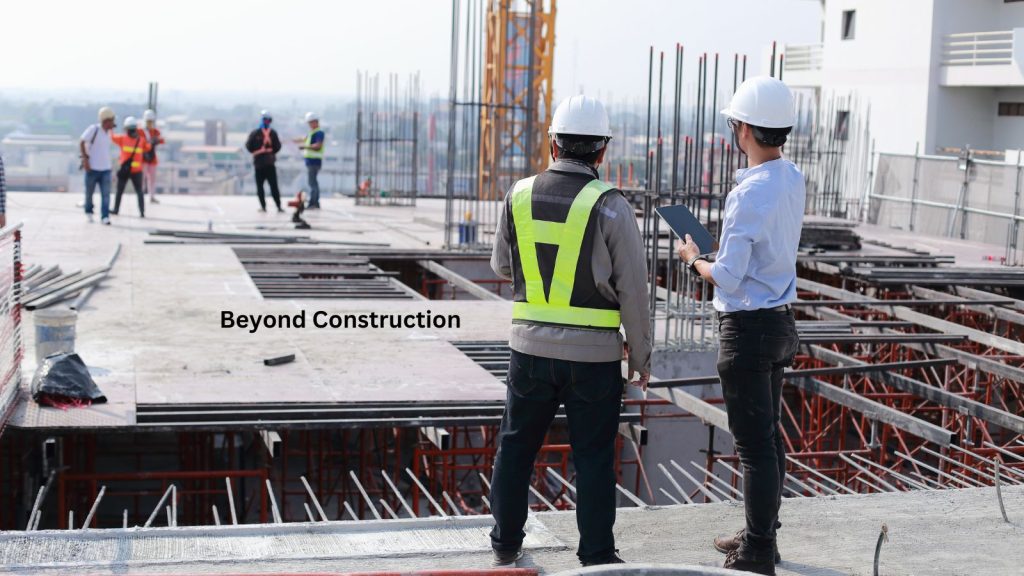Overview
Beyond Construction is a term that encapsulates various advanced techniques, technologies, and philosophies that transcend traditional construction practices. This concept emphasizes sustainability, innovation, digital integration, and holistic development, aiming to revolutionize the construction industry and create more efficient, eco-friendly, and adaptable structures.
Key Concepts
- Sustainable Building Practices:
- Green Building Materials: Utilizing eco-friendly materials that reduce the carbon footprint.
- Energy Efficiency: Implementing solar panels, wind turbines, and other renewable energy sources.
- Water Conservation: Incorporating rainwater harvesting systems and efficient plumbing fixtures.
- Advanced Technologies:
- Building Information Modeling (BIM): Enhancing project visualization and collaboration through digital representations.
- 3D Printing: Creating components and even entire structures with additive manufacturing techniques.
- Drones and Robotics: Using drones for site surveys and robots for tasks like bricklaying and welding.
- Smart Construction:
- IoT Integration: Embedding sensors and smart devices to monitor and manage building operations.
- AI and Machine Learning: Leveraging AI for predictive maintenance, project management, and optimizing construction schedules.
- Smart Cities: Designing urban areas with interconnected infrastructure for improved living standards.
- Holistic Development:
- Community Involvement: Engaging local communities in the planning and development process.
- Flexible Design: Creating spaces that can adapt to various uses and changing needs over time.
- Health and Well-being: Prioritizing the mental and physical health of occupants through design choices, such as ample natural light and green spaces.
- Regulatory and Policy Changes:
- Building Codes and Standards: Adapting to new regulations that promote sustainability and safety.
- Incentives for Green Building: Governments offering tax breaks or grants for sustainable construction projects.
- Global Standards: Aligning with international guidelines for sustainable development.
Case Studies
- The Edge, Amsterdam: Known as the smartest building in the world, The Edge uses IoT and BIM for efficient energy use and occupant comfort.
- Masdar City, UAE: A city designed to be sustainable and eco-friendly, using renewable energy sources and smart technologies.
- Project Milestone, Netherlands: The first commercially habitable 3D-printed houses, demonstrating the potential of additive manufacturing in construction.
Challenges and Opportunities
- Challenges:
- High Initial Costs: Sustainable and advanced technologies often require significant upfront investment.
- Skill Gap: A need for training and education to equip workers with the skills needed for modern construction techniques.
- Regulatory Hurdles: Navigating varying regulations and standards across different regions.
- Opportunities:
- Long-term Savings: Reduced operational costs and maintenance through energy-efficient and durable materials.
- Enhanced Livability: Creating healthier and more adaptable living environments.
- Economic Growth: Stimulating job creation and innovation within the construction industry.
Conclusion
Beyond Construction is about reimagining how we build and interact with our built environment. By embracing sustainability, advanced technologies, and holistic development, we can create structures and communities that are not only efficient and resilient but also enhance the quality of life for all inhabitants. This forward-thinking approach is essential for addressing the challenges of the 21st century, from climate change to urbanization.
